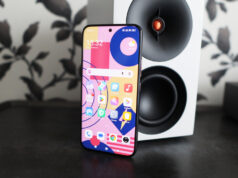If you’ve been shopping around for a new gadget recently, you’ll likely have come across the term “IP rating”.
Essentially, IP (short for Ingress Protection) ratings were developed by the International Electrotechnical Commission (IEC) to help consumers understand how dust and water-resistant an electronic device is. You’ll find all of the best smartphones, best headphones and even best outdoor security cameras sport an IP rating of some sort.
Keep reading to learn the difference between an IP68 and an IP69 rating and see which one works better for certain devices.
What is an IP68 rating?
All IP ratings have two numerical digits, with the first reflecting its dust resistance and the second indicating its water resistance. While generally speaking, the higher the number, the better the level of protection, this isn’t necessarily always the case. We’ll go into that in more detail later.
The “6” of an IP68 rating means the device in question is completely dust-tight, the highest possible level of protection against dust and solids.
The “8” of an IP68 rating means the electronic is “protected against the effects of continuous immersion in water”. However, it’s worth noting that the IEC does note that the exact water resistance level “shall be agreed between the manufacturer and user”, so you should check your device’s manual to determine the exact stipulations.
For example, the Samsung Galaxy S25 series sports an IP68 rating, with Samsung explaining this means the phones are “water resistant in fresh water to a maximum depth of 1.5 metres for up to 30 minutes”.

What is an IP69 rating?
Much like IP68, IP69 boasts the highest possible dust-protection rating from the IEC.
Where an IP69 rating differs is with its water resistance rating. The IEC explains that an IP water-resistance rating of 9 means the device in question is “protected against high-pressure and high-temperature water jets”.
However, while the higher number suggests a stronger protection rating than an 8, it’s worth noting that the IEC doesn’t explicitly state that a device can withstand immersion in water. That could be why devices like the OnePlus 13 sport both an IP68 and IP69 rating, to ensure it’s protected against both water immersion and high-pressure jets alike.


Differences between IP68 and IP69
The main difference between IP68 and IP69 is in their respective water-resistance protection. While an IP68-rated device is protected against “continuous immersion of water”, an IP69-rated gadget is protected from “high pressure and high temperature water jets” instead.
Whether an IP68 or IP69 rating is better depends entirely on the device in question. If you’re shopping around for a smartphone or even an underwater camera, then an IP68 rating is more important as your device is protected when submerged in water. An IP69 rating won’t necessarily protect it in that instance.
However, if you’re shopping for an electronic that will undergo intensive washing with a hose, then an IP69 is necessary to ensure it’s protected.









